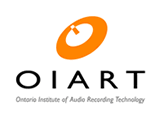Solid State Logic Ltd. (SSL) is a British company based in Begbroke, Oxfordshire, England that designs and markets audio mixing consoles, signal processors, and other audio technologies for the post-production, video production, broadcast, sound reinforcement and music recording industries. SSL employs over 160 people worldwide and has regional offices in Los Angeles, Milan, New York City, Paris, and Tokyo, with additional support provided by an international network of distributors. Solid State Logic is part of the Audiotonix Group.
George Y. Massenburg is a Grammy award-winning recording engineer and inventor. Working principally in Baltimore, Los Angeles, Nashville, and Macon, Georgia, Massenburg is widely known for submitting a paper to the Audio Engineering Society in 1972 regarding the parametric equalizer.

Metalworks Studios is a music recording studio in Mississauga, Ontario, Canada. It was established in 1978 by Gil Moore of the Canadian rock group, Triumph. Since 1978, Metalworks Studios has expanded into a six studio facility offering in-house tracking, mixing and mastering, as well as video editing and DVD authoring.

Robert Morgan Educational Center (RMEC) is a secondary school located at 18180 SW 122nd Avenue in Miami, Florida. As a magnet school, Robert Morgan is a juxtaposition of a vocational training and classical learning environment that is unique to other schools in its region. In April 2007, the school received regional accreditation by the Southern Association of Colleges and Schools.

The Ontario Institute of Audio Recording Technology (OIART) is a private career college in London, Ontario, Canada. The institute trains audio engineers for a variety of careers in music production, recording arts, audio engineering, sound recording and related fields. Founded in 1983 by engineer and producer Paul Steenhuis, the college focuses solely on sound. Graduates of the OIART program receive a Diploma in Audio Recording Technology.
Dan Brodbeck is a Canadian record producer, recording engineer/mixer and recording engineering professor based in London, Ontario.

pointblank is a global network of music production schools founded in London in 1994 by musician and producer Robert Cowan, offering a variety of courses in electronic music production, sound engineering, DJing, singing, songwriting, radio broadcasting, and music business. In addition to its original school in Hoxton, North London, pointblank now has schools in Los Angeles, Ibiza, Mumbai, Hangzhou, Shenzhen, and online.

An audio engineer helps to produce a recording or a live performance, balancing and adjusting sound sources using equalization, dynamics processing and audio effects, mixing, reproduction, and reinforcement of sound. Audio engineers work on the "technical aspect of recording—the placing of microphones, pre-amp knobs, the setting of levels. The physical recording of any project is done by an engineer…"

The Institute of Audio Research (IAR) was an educational institution in New York City. Students of IAR were offered a wide variety of academic programs in the field of music production and audio engineering. Students could choose from courses in audio electronics, digital music production, mixing music, and audio processing and storage, among others. It was founded in 1969 and closed in 2017, before partially resurfacing as part of Five Towns College in 2022.

Government Engineering College, Kozhikode (GECK), is a public engineering institute established by the Department of Technical Education under the Government of Kerala in India. It was one of the five public engineering institutes sanctioned in 1999 by the Government of Kerala. It is one of the 138 institutes affiliated to the APJ Abdul Kalam Technological University since 2015.
The Conservatory of Recording Arts and Sciences is a private for-profit technical school specializing in audio recording, audio engineering and production education with its main location in Tempe and a satellite campus in Gilbert, Arizona. It is accredited by the Accrediting Commission of Career Schools and Colleges and approved by the Arizona State Board of Private Postsecondary Education.
Robert Nation is a Canadian audio engineer and producer as well as co-owner of EMAC Recording Studios in London, Ontario.
Joe Vaughan is a Canadian recording engineer, musician, and currently, professor of audio engineering in the Music Industry Arts program at Fanshawe College. He is also a founder and co-owner of EMAC Recording Studios in London, Ontario.
The Multimedia University, is a private research university in Cyberjaya and Melaka in Malaysia. Founded in 1997, it is the first private university within Malaysia and is a member of The Alliance of Government Linked Universities (GLU).
Metalworks Institute is a post-secondary institution based in Mississauga, Ontario. Metalworks Institute offers certificates, diplomas, and advanced diplomas, on-campus and online, educating students for direct entry into careers in the entertainment industry or for articulation into undergraduate degrees. The institute was founded by Gil Moore of the Canadian rock band Triumph, and is the educational extension of Metalworks Studios, Canada's largest music recording studio, and Metalworks Production Group. Metalworks Institute delivers programs in four core streams: Live Music, Recorded Music, Entertainment Business and Music Performance, at the flagship Mississauga campus and at the Fredericton campus.
MediaTech Institute for Creative Arts (MediaTech) is a for-profit technical school specializing in media production with two locations in Texas. In 1999, the school was founded as Dallas Sound Lab’s audio engineering program. MediaTech Institute was established in 2003 when the Dallas and Austin Sound Labs acquired an additional location in Houston. MediaTech has schools in Houston and Dallas.

TIMARA is a program at the Oberlin Conservatory of Music notable for its importance in the history of electronic music. Established in 1967, TIMARA is well known as the world's first conservatory program in electronic music. Department alumni have included Cory Arcangel, Christopher Rouse, Dary John Mizelle, Dan Forden and Amy X Neuburg.

The Government Film & Television Institute, Bangalore is believed to be the first government institute in India to offer technical courses related to films. It is one of the few government film institutes in India. The institute is located at Hesaraghatta, Bengaluru in Karnataka. It is under the Directorate of Technical Education, Government of Karnataka. The institute offers three-year diploma courses in Cinematography and Sound Recording and Engineering. The diploma certificates are awarded by the Department of Technical Education, Government of Karnataka.
Women's Audio Mission is a non-profit organization and recording studio complex based in San Francisco and Oakland, California, whose mission is to promote "the advancement of women and gender-diverse people in music production and the recording arts."
The Solid State Logic SL 4000 is a series of large-format analogue mixing consoles designed and manufactured by Solid State Logic (SSL) from 1976 to 2002. 4000 Series consoles were widely adopted by major commercial recording studios in the 1980s.







